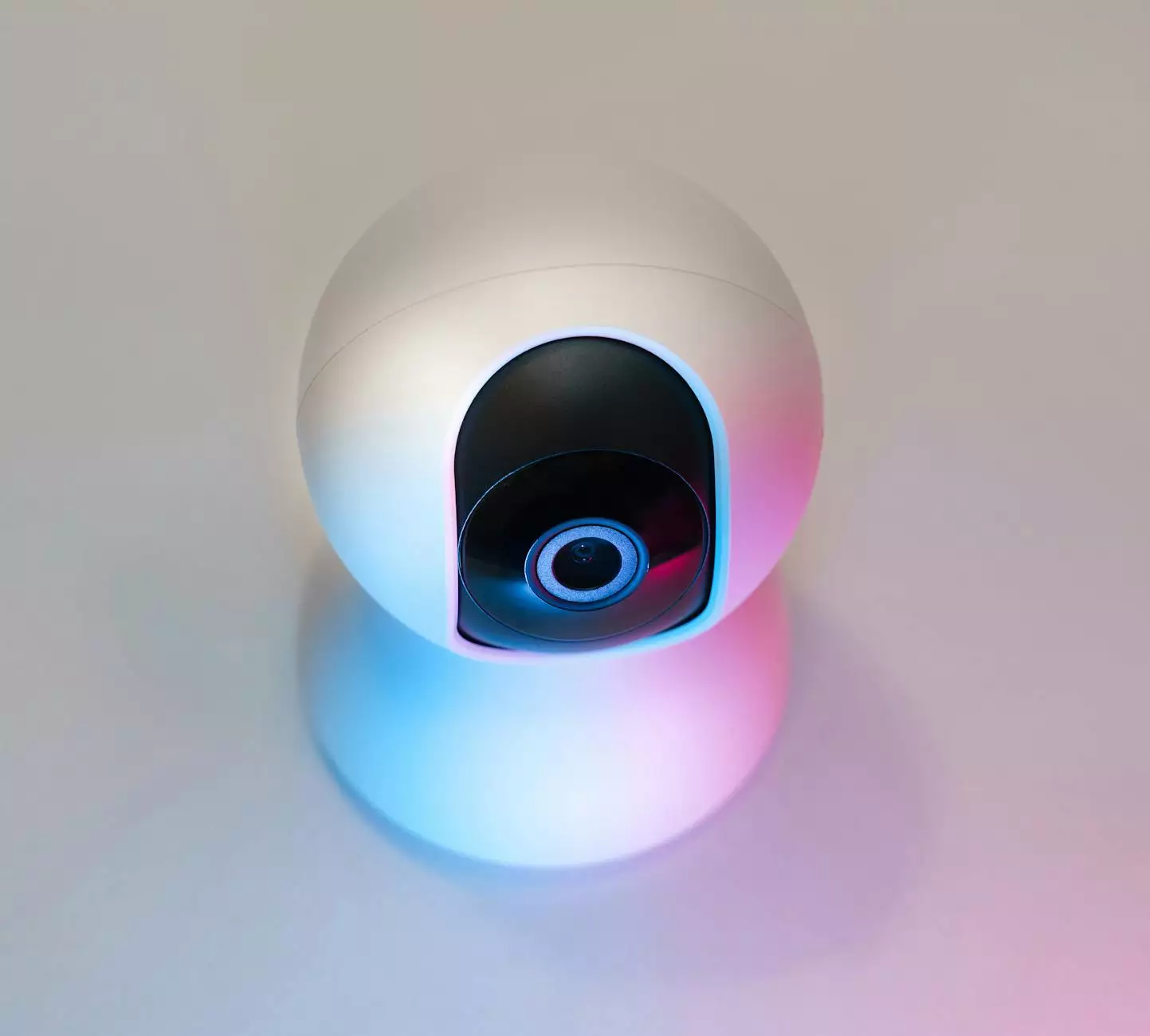Mastering the Art of Porting PC to Android: Unlocking New Business Opportunities in Game Development Outsourcing

In today’s rapidly evolving digital landscape, the ability to effectively port PC to Android applications and games has become a vital component of strategic growth for game development outsourcing companies. As technology advances and consumer preferences shift towards mobile platforms, businesses that master this skill unlock new revenue streams, expand their reach, and position themselves as leaders in their industry. This comprehensive guide offers in-depth insights, step-by-step methodologies, and strategic considerations for successfully translating PC applications to Android, ultimately fueling your business growth and competitive edge.
Understanding the Significance of Porting PC to Android in the Modern Gaming Ecosystem
The transition from PC to Android is more than a mere technical challenge; it is a pathway to unprecedented market expansion and user engagement. Android’s dominance with over 70% of global smartphone market share makes it an invaluable platform for reaching millions worldwide. For game development outsourcing companies, offering port PC to Android services not only diversifies your portfolio but also enhances client satisfaction by delivering versatile, multi-platform experiences.
Furthermore, porting allows companies to:
- Increase revenue streams through mobile app sales, ads, and in-app purchases.
- Leverage the large user base of Android devices for greater visibility.
- Maintain competitive advantage by adapting to platform trends.
- Optimize existing PC titles for mobile, adding value to your development offerings.
- Reduce time-to-market by utilizing efficient porting workflows and tools.
Fundamental Principles of Porting PC to Android
Successful port PC to Android requires a meticulous approach that considers technical, design, and user experience differences between platforms. Understanding these differences is fundamental to achieving a seamless transition that preserves game fidelity and performance while ensuring optimal usability on Android devices.
Technical Differences to Address in Porting
- Hardware architecture: PCs typically run on x86 architectures, whereas Android devices operate primarily on ARM processors. Compatibility layers and emulators can bridge this gap but must be optimized for performance.
- Input systems: Transition from keyboard/mouse to touchscreen controls requires redesigning UI and control schemes for intuitive touch interaction.
- Operating system APIs: Differences between Windows/Linux APIs and Android SDK necessitate significant code adjustments, especially in graphics, sound, and networking modules.
- Resource management: Mobile devices have limited RAM and processing power, demanding efficient resource utilization during porting.
- Performance optimization: Optimization techniques like texture compression and dynamic resolution scaling are crucial to maintain smooth gameplay.
- File system and storage: Android’s sandboxed environment and storage permissions require setup adjustments and adherence to platform guidelines.
Design and User Experience Adaptations
Mobile screens are significantly smaller, and players often engage in shorter gaming sessions. Consequently, porting must incorporate:
- Simplified UI elements for touch interaction.
- Adjusted game difficulty and pacing suited for mobile users.
- Replayability features to encourage frequent engagement.
- Optimized graphics that balance visual quality with performance constraints.
Step-by-Step Guide to Port PC to Android
The process of porting PC applications to Android involves strategic planning, development, testing, and deployment phases. Here is an in-depth breakdown:
1. Initial Assessment and Feasibility Analysis
Evaluate the existing PC application’s architecture, dependencies, and performance metrics. Identify platform-specific modules and potential bottlenecks. This phase involves:
- Mapping out core functionalities that require adaptation.
- Assessing codebase compatibility with Android development tools.
- Estimating resources and timelines required for porting.
2. Setting Up the Development Environment
Utilize Android Studio and relevant SDKs. Establish cross-compilation environments if necessary and integrate game engines like Unity, Unreal, or custom engines compatible with Android.
3. Code Modification and Optimization
Refactor code to replace platform-dependent calls with cross-platform or Android-specific APIs. Focus on:
- Implementing touch controls and gesture recognition.
- Adapting graphics rendering for mobile hardware.
- Refining audio playback for mobile speakers and headsets.
- Ensuring network connectivity features work reliably in Android environment.
4. UI/UX Redesign for Mobile
Redesign UI elements to fit smaller screens while maintaining game aesthetics. Prioritize touch friendliness and accessibility.
5. Performance Testing and Optimization
Conduct iterative testing on various Android devices to identify performance issues. Optimize asset sizes, frame rates, and memory consumption. Use profiling tools to pinpoint bottlenecks.
6. Compatibility and Compliance Checks
Ensure compliance with Google Play policies regarding permissions, privacy, and content guidelines. Test with diverse devices to ensure broad compatibility.
7. Deployment and Post-Launch Support
Prepare for app submission by creating store assets and detailed descriptions. Post-launch, monitor user feedback, fix bugs, and deliver updates to enhance user experience.
best Practices for Port PC to Android in Game Development Outsourcing
For outsourcing companies like Pingle Studio, excelling in porting services means adopting best practices:
- Use cross-platform game engines: Unity and Unreal Engine facilitate easier porting with built-in support for Android.
- Maintain modular code structures: Modularity simplifies platform-specific adjustments.
- Prioritize user-centric design: Focus on intuitive controls and appealing visuals suited for mobile users.
- Automate testing pipelines: Leverage CI/CD tools for consistent quality assurance across devices.
- Invest in quality assurance: Conduct extensive device testing to ensure stability and performance.
Challenges and How to Overcome Them in the Port PC to Android Process
While porting offers significant benefits, it also presents challenges:
- Hardware limitations: Addressed through optimization and scalable assets.
- Control scheme adaptation: Utilize user testing to refine touch controls.
- Performance bottlenecks: Apply profiling and iterative optimization.
- Fragmentation of devices: Test across multiple device configurations to ensure compatibility.
- Platform-specific bugs: Maintain detailed documentation and employ debugging tools.
Maximizing Business Growth Through Port PC to Android Services
Incorporating port PC to Android expertise into your service offerings enhances your value proposition in the competitive game development outsourcing sector. Strategies to capitalize on this include:
- Building a dedicated team of porting specialists proficient in various engines and platforms.
- Offering comprehensive end-to-end porting solutions from initial assessment to post-launch support.
- Developing proprietary tools and workflows to streamline porting processes, reducing costs and turnaround times.
- Partnering with device manufacturers and app stores to facilitate smoother deployment.
- Providing consulting on monetization strategies specific to Android ecosystems.
Conclusion: Port PC to Android as a Catalyst for Innovation and Business Expansion
Effectively port PC to Android is not merely a technical endeavor but a strategic business move that unlocks vast opportunities for growth and innovation. As the mobile gaming market continues to burgeon, companies that master this skill will position themselves at the forefront of the industry. By embracing best practices, investing in skilled talent, and leveraging powerful tools, your outsourcing business can deliver compelling, high-quality Android ports that satisfy clients and captivate users worldwide.
Whether you aim to expand your service offerings or significantly boost your company’s market footprint, the art of porting PC to Android is your gateway to sustained success in the dynamic universe of game development outsourcing.
For expert assistance and innovative solutions in port PC to Android projects, Pingle Studio is your premier partner dedicated to delivering excellence.









